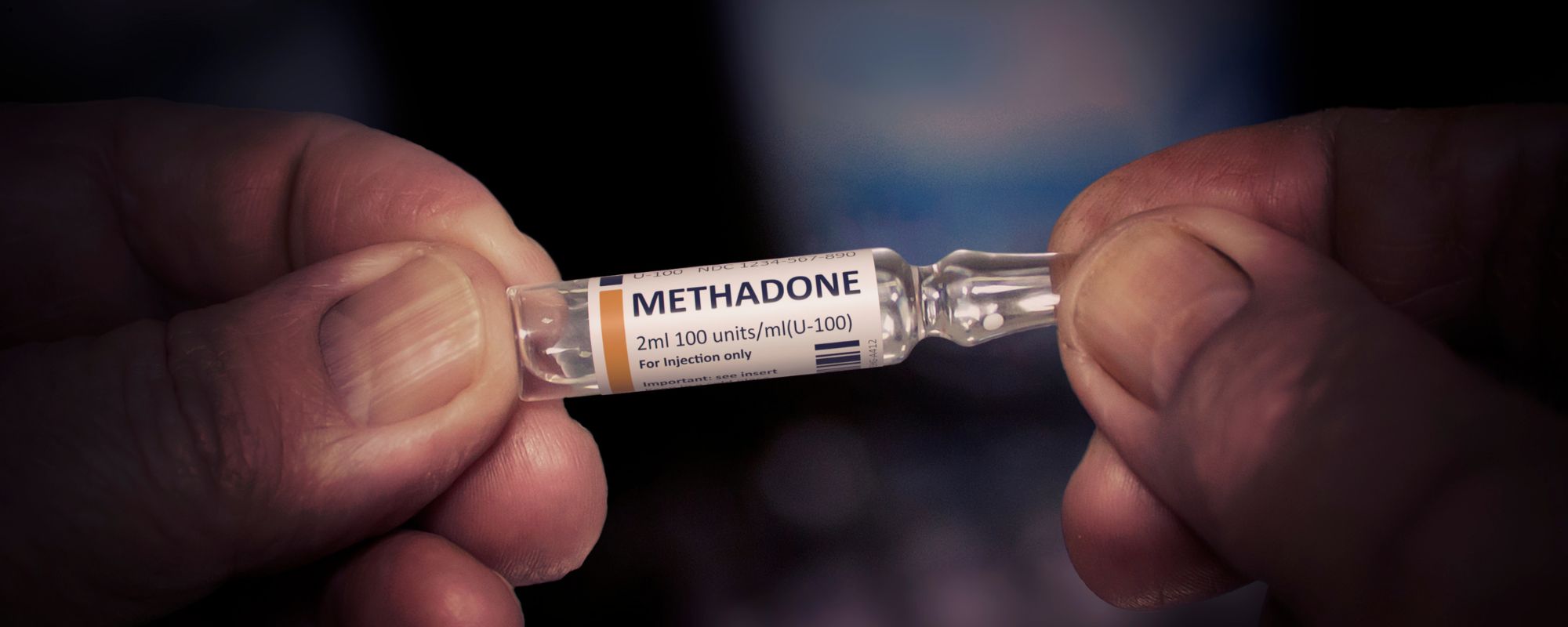Alcohol and drug abuse in women is different from men from a biological and psychological standpoint. These differences highlight the need for gender-specific approaches when addressing alcohol and drug abuse in women. More specifically, men and women face unique challenges when it comes to addiction due to biology, mental health disorders, and gender roles.
Stimulant Drug Abuse in Women
In many cases, women are more vulnerable to the risks associated with drug and alcohol addiction. For this reason, it is essential to understand the influencing factors of addiction in women.
Stimulant drug abuse in women is a serious concern and has been increasing in recent years. Often women abuse prescription stimulants such as Adderall and Ritalin, as well as illicit stimulants like cocaine and methamphetamine.
Stimulant drug abuse in women often results from a desire for more energy. Unfortunately, stimulants all share the potential risk for abuse and can quickly develop into an addiction.
Due to the differences in sex and gender, women who abuse stimulants are likely to experience the following:
- Higher rates of co-occurring depression
- Earlier introduction to cocaine and meth use
- Taking stimulants in larger amounts
- Faster and more severe development of psychological dependence
- Lower rates of switching to another drug when they lack access to stimulants
- More receptive to substance abuse treatment
Stimulant medications are prescribed to increase alertness and concentration in people with attention-deficit disorder (ADHD). When taken as directed, stimulant medications are an effective treatment for ADHD.
However, stimulants can be abused by healthy women looking for an energy boost or mental edge. For this reason, women often abuse stimulants in an attempt to improve their performance in school, work, and family responsibilities. Women also commonly report abusing stimulants to lose weight.
In addition, illicit stimulant drugs like cocaine and meth are also commonly abused among women. Illicit and prescription stimulants are highly addictive drugs that carry a long list of potential health risks.
Stimulant abuse in women can result in physical and mental side effects including:
- Heightened alertness
- Increased heart rate
- Elevated blood pressure
- Increased body temperature
- Decreased appetite
- Insomnia
- Nausea
- Anxiety
- Depression
- Hallucinations
- Psychotic episodes
- Heightened aggression
- Addiction
In addition to the personal impacts, stimulant abuse has negative social consequences. Drug abuse in women often leads to relationship problems, financial difficulties, job loss, and legal problems from the possession of drugs.
Opioid Drug Abuse in Women
In general, opioids are a class of drugs used to reduce pain. Opioids include the illegal drug heroin, synthetic opioids such as fentanyl, and prescription pain medications such as oxycodone, hydrocodone, and morphine.
The abuse of illicit and prescription opioids among women is a growing concern in the United States. According to the CDC, deaths due to opioid overdose more than quadrupled in the United States from 1999 to 2015. Since then, opioid overdose deaths have continued in this trend, increasing to a total of 16,706 reported deaths in 2021.
Women and Opioid Prescriptions
Women are particularly affected by opioid prescriptions due to their higher rates of chronic pain. This is because women experience more frequent and intense pain on a biological level. For this reason, women who recieve medical care for pain management are more vulnerable to opioid use and abuse.
Research shows that women are twice as likely to be prescribed opioid pain medications than men. Prescription or not, opioids are highly addictive. In turn, the increased exposure to prescription opioids raises a woman’s chances of developing an opioid use disorder.
Due to the differences in sex and gender, women are likely to experience the following:
- Increased sensitivity to pain
- Higher risk of having chronic pain
- More likely to take opioids without a prescription to cope with pain
- More likely to misuse opioids to self-medicate mental health disorders
- Higher risk of overdose death between the ages of 45 and 54
Other factors put women at greater risk for prescription opioid abuse than men. These can include mental health issues as well as a history of sexual or physical trauma. According to SAMSHA, individuals with mental health disorders have a higher risk of developing an addiction.
Studies show that women are twice as likely as men to experience depression or anxiety disorder during their lifetimes. If left untreated, these underlying mental health disorders may lead women toward self-medication with opioids. Additionally, prescription drug abuse in women can begin as a way to cope with stress or life changes.
Effects of Opioid Abuse on Women
In general, long-term opioid abuse can lead to an increased risk of overdose and even death. With that being said, women who abuse opioid medications can experience a wide range of physical and mental health issues.
Long-term effects of opioid abuse in women may include:
- Depression
- Anxiety
- Organ damage
- Increased blood pressure
- Liver disease
- Kidney problems
Opioid abuse is commonly linked to mental illness in women. Additionally, women may experience difficulties with social functioning or academic performance if opioid addiction is left untreated.
Physically, opioid addiction can cause damage to organs like the liver or kidneys as well as increased pain sensitivity. Women who abuse opioids can also be at a higher risk of developing infectious diseases, including HIV and Hepatitis C.
The dangers of prescription opioid abuse can be especially severe for pregnant women. Opioids can harm the mother and baby, leading to low birth weight and preterm labor. Using opioids during pregnancy can also result in neonatal abstinence syndrome (NAS), a disorder that makes babies experience opioid withdrawal after delivery.
Heroin Abuse in Women
Heroin abuse is a serious problem for women because they face unique risks and challenges when using the drug. For instance, women are more likely to become addicted to heroin after only a few uses.
Due to the differences in sex and gender, women who abuse heroin are likely to experience the following:
- Earlier introduction to heroin use
- More likely to use smaller amounts and for a shorter time
- Less likely to inject the drug
- More influenced by drug-using sexual partners
- Higher risk of overdose death in early years
- More likely to survive long-term if they do not overdose in the first years of use
Some women turn to heroin after becoming dependent on prescription opioids provided by doctors for pain relief. Once their prescription runs out, women may use heroin in an attempt to ease symptoms of chronic pain or withdrawal. Replacing prescription opioids with heroin often leads to a dangerous cycle of abuse.
Women who abuse heroin may experience a range of physical and psychological side effects, including:
- Depression
- Anxiety
- Guilt
- Abscesses
- Infections
- Sexually transmitted diseases (STDs)
- Infertility
- Heart complications
- Liver disease
- Weakened immune system
- Overdose
Heroin use can lead to physical problems. For instance, women who share needles have an increased risk of collapsed veins. They are also more likely to contract HIV/AIDS, hepatitis B, and C, and other blood-borne illnesses. On top of this, women are more likely to experience severe withdrawal symptoms if they attempt to quit heroin suddenly.
Studies show that women are also more likely to turn to prostitution or other risky behaviors to finance their substance abuse. As a result, women who abuse heroin are often at greater risk of being victimized or assaulted. Unfortunately, pregnant women can also give birth prematurely or have stillbirths as a result of heroin abuse.
Use of Sleeping Pills and Anxiety Medications in Women
Prescriptions for anxiety medications and sleeping pills in women are a growing concern due to the potential for abuse. Studies show women are almost twice as likely to have an anxiety disorder in their lifetime. According to the CDC, women are also twice as likely to take medication for sleep.
Women who suffer from anxiety disorders and sleeping issues often turn to benzodiazepines, barbiturates, and SSRIs to cope with their symptoms. While medication can be an effective treatment for mental health conditions, many are habit-forming and can lead to addiction.
Due to the differences in sex and gender, women with anxiety are more likely to experience the following:
- More likely to seek treatment for misuse of central nervous system depressants
- Higher risk of overdose death from mental health medications
- High rates of emergency department visits
Studies also have shown that women are more than twice as likely to receive prescription medication for anxiety. Due to differences in hormones or brain chemistry, women have an increased risk of becoming dependent on these medications.
Women who use anti-anxiety and sleeping medication may experience a range of physical and psychological side effects, including:
- Chronic fatigue
- Reduced motivation
- Cognitive impairment
- Memory loss
- Impaired judgment
- Depression
- Suicidal thoughts
- Liver damage
- Breathing issues
Commonly, women who take anti-anxiety medications and sleeping pills develop a tolerance. This means that the medications lose their effects over time and require increasingly higher dosages to achieve the same result. Depending on the drug used, this can lead to physical dependence resulting in potentially life-threatening withdrawal symptoms. In addition, the combination of alcohol with certain drugs like benzodiazepines can be particularly dangerous.
Marijuana Abuse in Women
Research shows that more women are using cannabis for recreational or medical use. As more people gain access to legal marijuana, people are becoming increasingly aware of the drug’s negative impact on women. Unlike men, marijuana use in women can have different adverse side effects. This is because the drug can alter female hormone levels and other areas of health.
Due to the differences in sex and gender, women who abuse marijuana are more likely to experience:
- Panic attacks
- Anxiety disorders
- Addiction develops more quickly
- Spatial memory impairment
- Brain damage from regular marijuana exposure in youth
While marijuana’s impact on mental health in women is still being studied, research suggests that it can increase the risk of anxiety and panic disorders. Marijuana abuse in women can also result in physical health risks such as an increased risk for issues in brain development.
Marijuana use has also been linked to a weakened immune system, leaving women vulnerable to various illnesses. For this reason, women who use marijuana have a greater risk of developing cysts, menstrual issues, fertility complications, and miscarriages.
Women and Alcohol
Women tolerate alcohol less well than men because the female body has a different process of absorbing and metabolizing alcohol. The differences in physiological responses to alcohol mean that women are more vulnerable to alcohol’s effects. Even if they drink less often or less heavily, women are more likely to develop health problems from alcohol consumption. Consequently, regularly consuming alcohol or drinking alcohol in large amounts is more likely to cause alcoholism in women.
Due to the differences in sex and gender, women who drink alcohol are more likely to experience the following:
- Higher rates of alcohol misuse and binge drinking between the ages of 12 and 20
- More intoxicated from a smaller amount of alcohol
- Higher risk of unprotected sex, pregnancy, and sexually transmitted disease
- Higher risk of becoming a victim of violence and sexual assault
- Increased risk of breast cancer, heart disease, liver disease, and brain damage
- AUD death rates are 50 to 100 percent higher
Alcohol and Women’s Health
Alcoholic women often drink for different reasons than men and are more prone to developing an alcohol use disorder (AUD). AUDs are especially common in women if there is a family history of addiction or abuse. Although the negative impacts of alcohol are more severe for those who struggle with alcoholism, all women can experience adverse side effects.
The effects of alcohol on women’s bodies can cause a range of physical and psychological side effects, including:
- Memory loss
- Impaired judgment
- Difficulty controlling emotions
- Sexual dysfunction
- Relationship issues
- Anxiety
- Depression
- Breast cancer
- Liver disease
- Heart issues
- Brain damage
- Seizures
- Alcohol poisoning
Patterns of heavy drinking are linked to a myriad of life-threatening medical conditions in women. In addition, alcohol abuse in women can lead to pregnancy complications such as fetal alcohol syndrome (FAS).
On top of this, women who drink heavily are more likely to suffer from co-occurring mental health disorders. Co-occurring disorders such as anxiety, depression, and bipolar disorder can make it difficult for women to cope with life stressors and feed a toxic cycle of alcohol abuse.
Women’s Addiction Treatment Center
Women’s addiction treatment center offers gender-specific programs that are beneficial in addressing the unique needs of women in recovery. During treatment in drug rehab for women, guests are immersed in gender-responsive care that caters to their physical, psychological, and female-related needs.
Gender-specific addiction treatment programs for women aim to meet the unique needs of our female guests. In doing so, women gain valuable tools to help move them away from substance abuse. As guests participate in individual and group therapy, they will be able to process the underlying reasons behind their addiction.
Treatment for alcohol and drug abuse in women also incorporates evidence-based therapies such as cognitive behavioral therapy (CBT) and dialectical behavior therapy (DBT). Using research-back techniques, certified therapists teach women vital coping skills that will help them maintain their sobriety following treatment. Alongside therapy, substance abuse treatment for women provide addiction education and life skills workshops to set the foundation for a new life in recovery.
Royal Life Centers’ Arizona Drug Rehab For Women
Seaglass at Royal Life Centers provides women’s residential treatment for alcohol and drug abuse in our addiction treatment facility located in Prescott, Arizona. Our Arizona drug rehab for women provides residential treatment as a continuation of the medical and therapeutic care found in our Arizona detox center.
During residential treatment for women, our female guests attend both individual and group therapies. Guests also meet with their personal case manager to resolve any legal, social, employment, or personal issues.
Royal Life Centers also offers continuing care services within our aftercare programming for men and women within a separate portion of our facility grounds. Our aftercare services include treatment in partial hospitalization (PHP), intensive outpatient (IOP), and outpatient (OP).
Reach Out
If you or a loved one is struggling with a substance use disorder, please feel free to reach out to us at 877-RECOVERY. Our addiction specialists are available 24/7 to assist you through this time and help you find hope in recovery.













